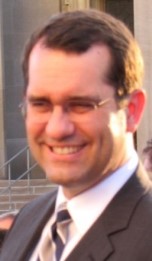
Views
Opinion column
by Murrel Bland
Many things that the office of the Kansas attorney general does may not make headlines. That was the message of Derek Schmidt, the current Kansas attorney general, when he spoke Friday, May 20, at the monthly meeting of the Congressional Forum.
Schmidt said during his five years in office, he has been able to recover about $600 million for Kansans who have been the victims of scams. His office also regulates metal dealers and licenses private investigators. He also regulates bounty hunters.
The attorney general provides legal counsel when someone sues the state of Kansas. One such case was the tobacco settlement. The tobacco companies alleged that the state of Kansas was not using the money in the way it was intended. He was successful in resolving that issue.
The attorney general enforces the open records and open meetings laws. Recently his office conducted a training session on these laws at Kansas City, Kansas, Community College for local officials.
Schmidt said he is proud that his office has been successful in strengthening the laws against human trafficking and to extend the “do-not-call” law to cell phones. He said he was able to prosecute a Florida company that was operating a telephone scam promoting a phony cruise offer; he recovered about $130,000.
The attorney general’s office helps law enforcement officers in small cities and counties in major criminal cases.
Schmidt said he has been able to provide all these functions of his office by keeping his budget fairly flat at about $22 million a year.
Schmidt was asked about his prediction on the school funding case before the Kansas Supreme Court. His office represented the state of Kansas, which is the defendant. He said he would not speculate. Schmidt said those who might offer views about how the case would be decided are simply guessing.
Schmidt has been mentioned as a possible candidate for Kansas governor. He was asked who the last attorney general was who was elected governor. He said it was John Anderson Jr.
Schmidt is serving his second term as attorney general. He previously was a state senator from southeastern Kansas. He is a journalism graduate of the University of Kansas, Lawrence. He also received law degrees from KU and Georgetown Law Center, Washington, D.C. He also served on the staffs of Gov. Bill Graves and U.S. Sen. Nancy Landon Kassebaum.
Murrel Bland is the former editor of The Wyandotte West and The Piper Press. He is the executive director of Business West.
